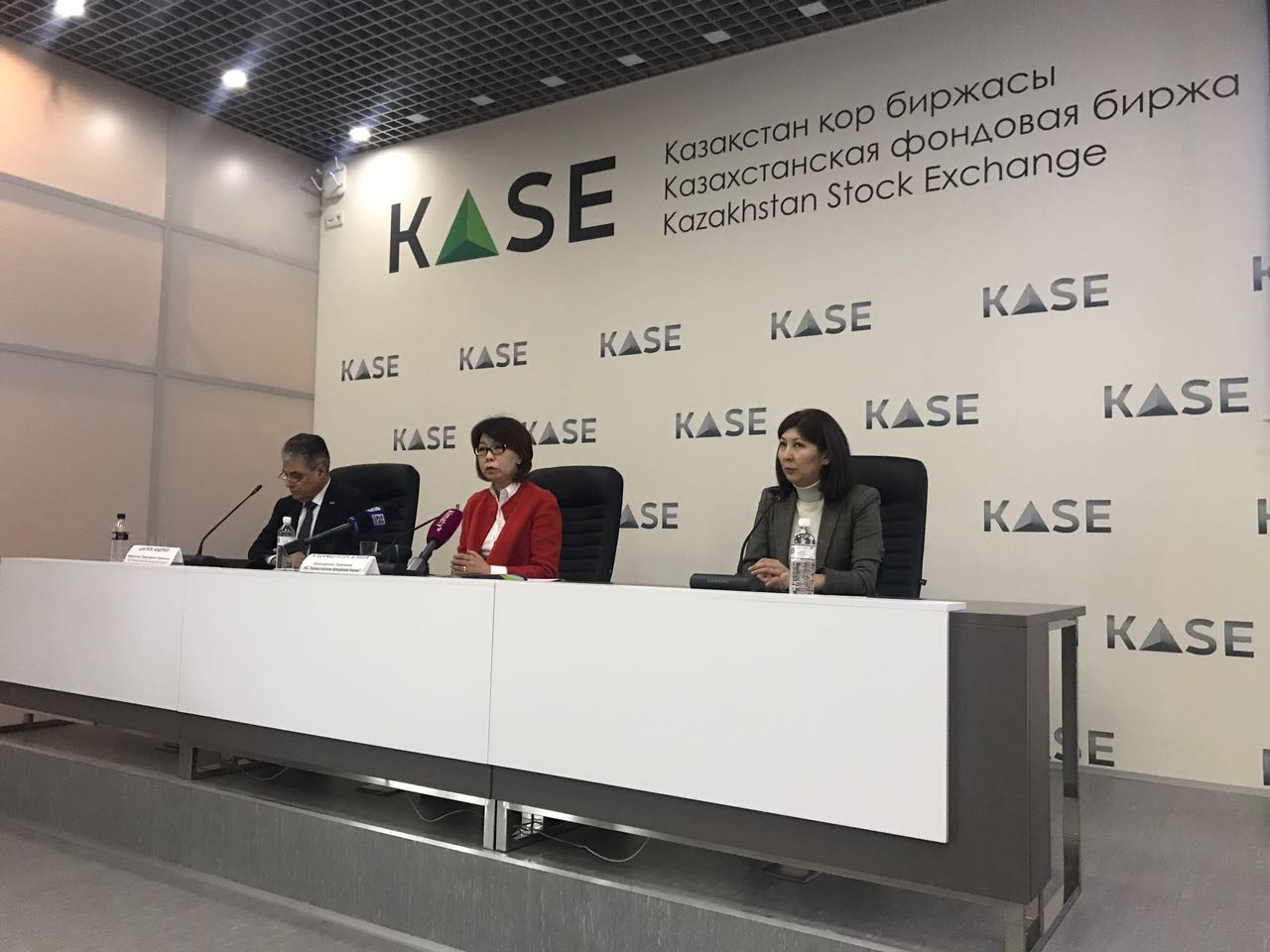• The volume of trading in the first quarter of 2018 amounted to 33.8 trillion KZT, which is 12.1% or KZT 4,670.3 billion less than in the same period in 2017. There have been positive dynamics at the securities market, namely 95.8% increase and at the foreign exchange market due to the increase of 34.6%.
• The value of the KASE Index increased by 12.7% reaching 2,437.05 points.
• Capitalization increased by 8.1% reaching 18.5 trillion KZT.
• JSC KazMunaiGas bought back its common shares for 9 billion KZT and depository receipts (GDRs) for 868 million USD.
• As of April 1, 2018, the Central Depository registered 110,201 personal accounts, this is 956 more than at the beginning of 2018.
• On March 15, KASE introduced an updated methodology for communication to ensure better assessment of transparency, environmental impact, social responsibility and corporate governance (ESG criteria).
Individuals remained the most active among the main categories of investors, whose share amounted to 54.7%. The share of second-tier banks was 1.5%, that of the broker-dealers was 19.3%, the share of the other institutional investors amounted to 11%, while the figure for the legal entities was 13.4%. finally, the share of non-residents in the stock market was 4.5%.
Andrei Tsalyuk noted the role of insurance companies as institutional investors. "They are quite active, - he said, - but they need credit ratings." And here is the problem as there no local rating agencies. The services of international rating agencies are quite expensive. Therefore, not all issuers can afford it. As for individual investors, there are not so many of them yet. “We hope that the project of the National Bank, which shall enable to buy the notes via mobile phones, will attract individuals interested in obtaining additional fixed income and their number will grow”.
Deputy Chairman also noted that the number of active accounts in the first quarter of 2018 grew amounting to more than 5300. "This is a very good sign, three years ago, for example, the number did not exceed one and a half thousand", he added.
Andrei Tsalyuk emphasized growing demand for corporate bonds.
The deposit yields decline quite rapidly, sovereign securities also fall, the decrease of the yield on the National Bank notes has recently accelerated. “Understandably, investors are looking for an alternative. We see the increased demand for corporate bonds and I think it will grow further. In this quarter, there have been 5 placements, this is significantly higher than the quarter before. Corporate bonds are more in demand” - Mr. Tsalyuk said at the press conference.
At the end of the quarter, KASE was trading 254 corporate bonds of 66 issuers. During this period, Halyk Finance (Halyk Bank affiliated), JSC Xell, JSC Development Bank of Kazakhstan and JSC Tsesnabank were included in the KASE lists.
Since the launch of commercial bonds trade, 9 companies placed their bonds reaching 13.3 billion KZT. The secondary market is 1.2 billion KZT. In the first quarter, the two entered the short-term borrowing market, namely Tsesnabank and Halyk Finance. According to KASE, the commercial bond trade was launched so that the listed companies could quickly and inexpensively attract short-term funds.
KASE reached 77.8 billion KZT in terms of corporate bonds trade. This is the 8.2-fold increase compared to the same period of 2017 that was possible mainly due to the trade on the primary market. The average daily volume amounted to 1,318.4 million KZT. On average day, there are five deals and the volume per transaction is about 255 million KZT.
In this quarter, the bonds of five issuers were placed for a total of 55.8 billion KZT. For the same period last year, there was only one placement of 851.5 million KZT.
As for the main categories of investors, the second-tier banks had 1.8% at the primary market of corporate bonds, the figure for the other institutional investors was 10.5% and 87.7% for the other legal entities.
The volume of trading on the secondary market increased by 13.3 billion KZT; this is 2.5 times bigger amounting to 22.0 billion KZT. Here, the share of the second-tier banks was 29.4%, the broker-dealers had 11.1%, the other institutional investors retained 38.1%, while the figure for the other legal entities was 17.9%. The share of individuals at the secondary market was 3.5% with 1.5% of non-residents among them.
The press conference also announced the contract between KASE and PJSC "Moscow Exchange" that provides for a strategic partnership between the two exchanges and, in longer term, the participation of the “Moscow Stock Exchange” in the KASE capital. According to Alina Aldambergen, under Kazakhstan laws, external participation in the capital of Kazakhstan entities shall not exceed more than 25%.
For more information, see:





